
In 1627, a professional lace-maker named Thomasine Hall boarded a ship in England and arrived at Jamestown, Virginia, to become a maidservant in the household of a man named John Tyos. Women of English origin were scarce in that part of the New World, amid the recently established and extremely laborintensive tobacco plantations. A count conducted in 1624 recorded only two hundred and thirty adult women among the twelve hundred and fifty Europeans living in Virginia. Women were urgently needed for marital fellowship and procreation, and male settlers paid the Virginia Company the considerable sum of a hundred and fifty pounds a head for the transportation of prospective wives across the Atlantic. Females were also in demand for their gender-specific domestic skills. This was Hall’s value to Tyos. As an experienced seamstress, Hall, who was twenty-five or so, would have made clothing and other items. Additional duties would likely have included cooking, cleaning, candle-making, and other forms of women’s work.
But was Hall really a woman? After Hall had been living in Tyos’s household for a year or two, rumors started to spread that the supposed maidservant was—in the assessment of one male neighbor—“a man and woeman.” It fell to three local women to perform a physical examination of Hall’s genitals and make their own determination. When their investigation convinced them that Hall was male, the matter came to the attention of Captain Nathaniel Basse, whose military rank and past service in colonial government made him the community’s unofficial leader. Basse asked Hall, Are you a man or a woman? According to a partially surviving record of the exchange, from the Virginia General Court, in Jamestown, Hall “replyed that hee was both.”
Denne historien er fra September 02, 2024-utgaven av The New Yorker.
Start din 7-dagers gratis prøveperiode på Magzter GOLD for å få tilgang til tusenvis av utvalgte premiumhistorier og 9000+ magasiner og aviser.
Allerede abonnent ? Logg på
Denne historien er fra September 02, 2024-utgaven av The New Yorker.
Start din 7-dagers gratis prøveperiode på Magzter GOLD for å få tilgang til tusenvis av utvalgte premiumhistorier og 9000+ magasiner og aviser.
Allerede abonnent? Logg på
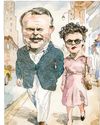
SUBJECT AND OBJECT
What happened when Lillian Ross profiled Ernest Hemingway.

ROYAL FLUSH
The fall of red.
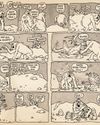
Roz Chast on George Booth's Cartoons
There's almost nothing I like more than a laughing fit. It is a non-brain response, like an orgasm or a sneeze.
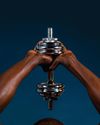
CHUKA
I have always longed to be known, truly known, by another human being. Sometimes we live for years with yearnings that we cannot name.
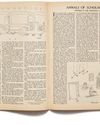
Rachel Aviv on Janet Malcolm's "Trouble in the Archives"
As Janet Malcolm worked on \"Trouble in the Archives,\" a two-part piece about prominent psychoanalysts who disagreed about Freud, she began a correspondence with Kurt Eissler, the head of the Sigmund Freud Archives.

PERSONAL HISTORY - A VISIT TO MADAM BEDI
I was estranged from my own mother, so a friend tried to lend me his.
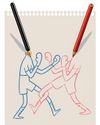
AMERICAN CHRONICLES - WAR OF WORDS
Editors, writers, and the making of a magazine.
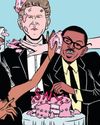
LIVE FROM NEW YORK
A new docuseries commemorates fifty years of \"Saturday Night Live.\"
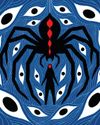
TANGLED WEB
An arachnophobe pays homage to the spider.

TROUBLE IN PARADISE
Mike White's mischievous morality plays.
